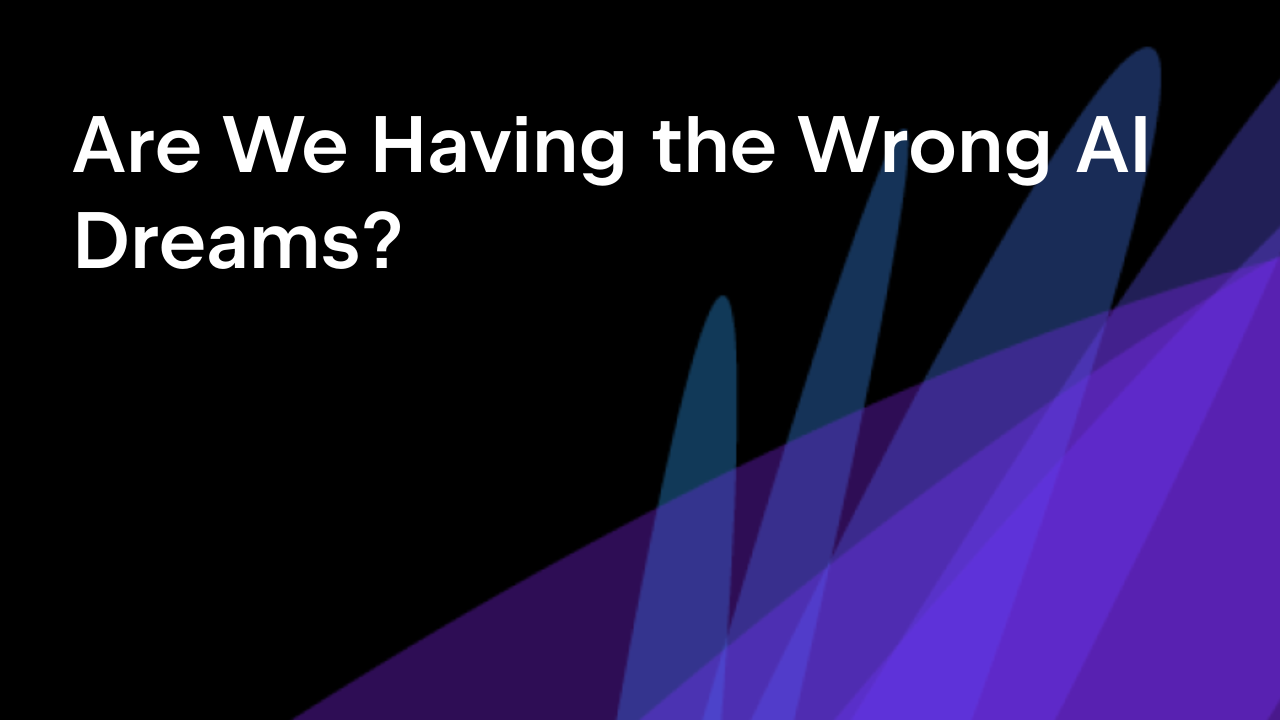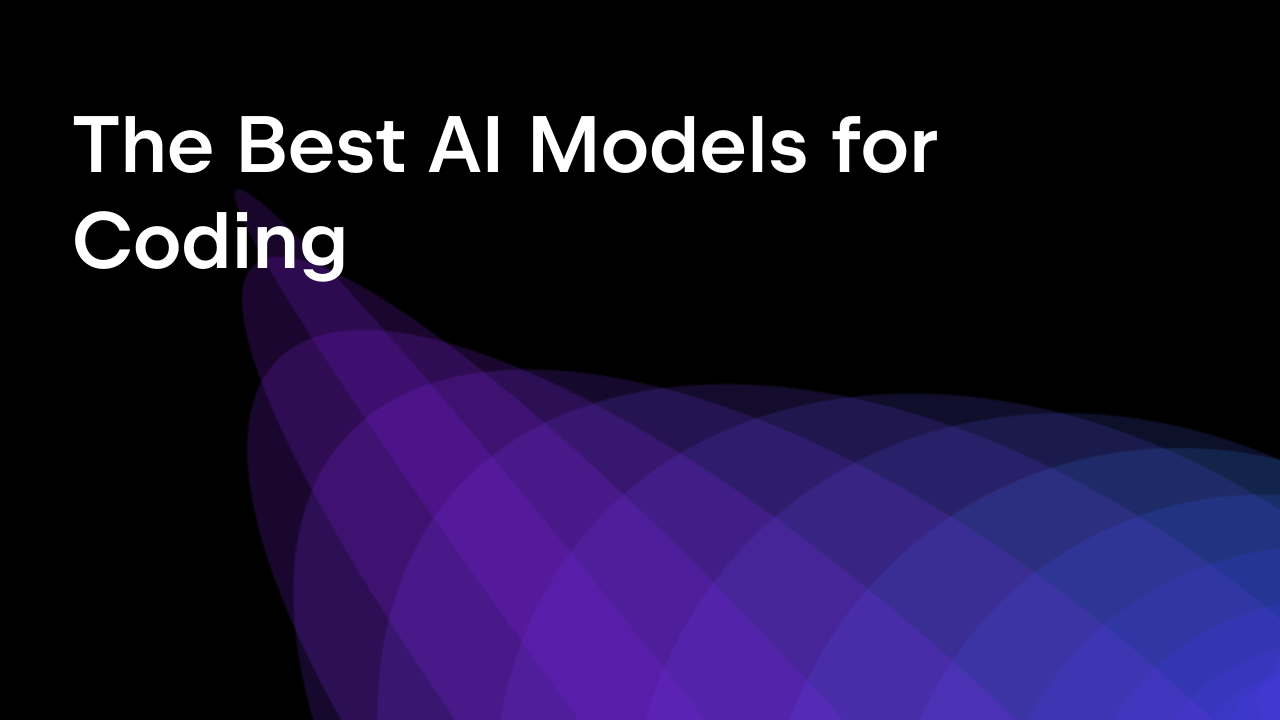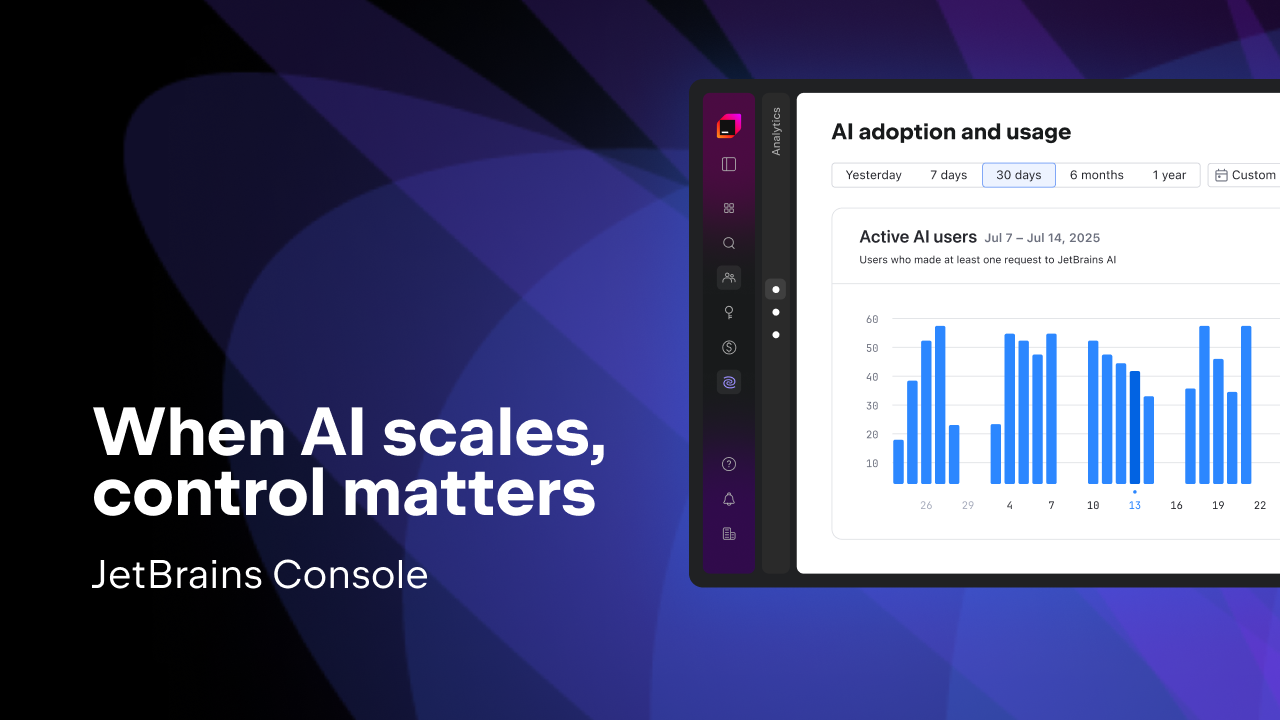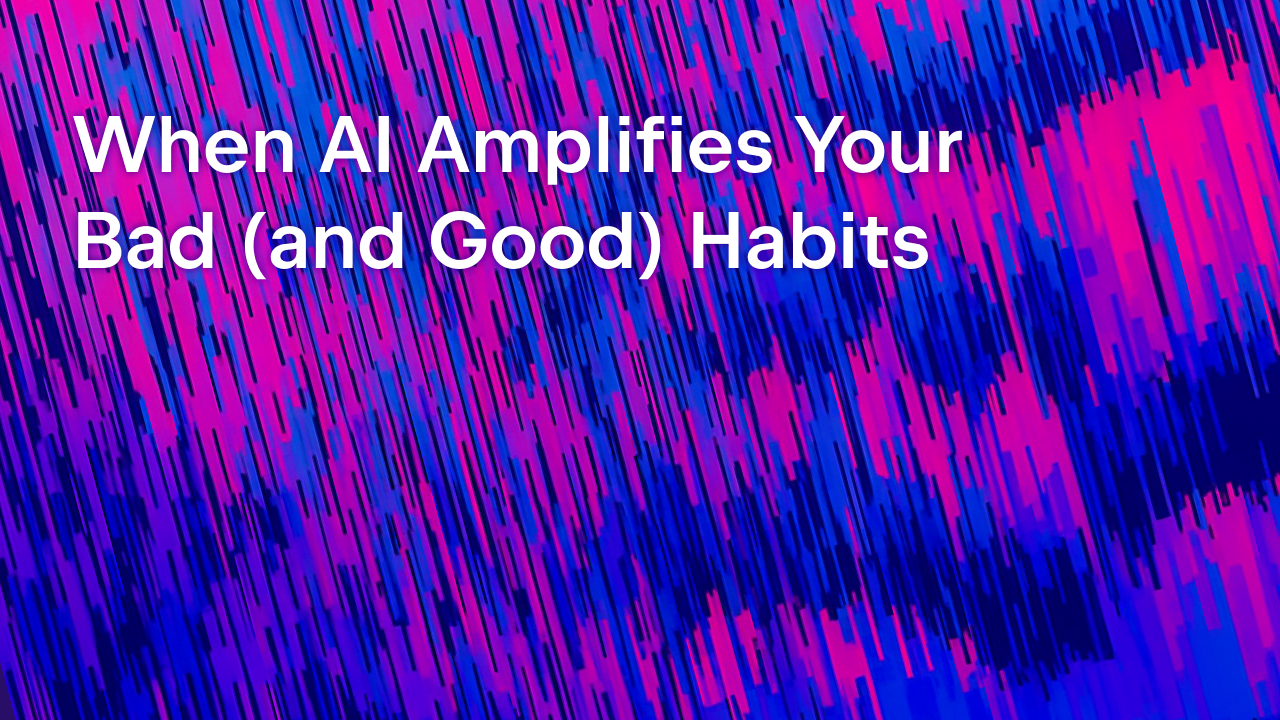JetBrains AI
Supercharge your tools with AI-powered features inside many JetBrains products
Why Trust Leads and Speed Follows in Agentic Design
Every developer recognises the trade-off. You can take the shortcut that delivers today but breaks tomorrow, or choose the slower approach that earns lasting confidence.
This dilemma has become even more poignant with the widespread integration of AI agents into real workflows. Speed feels tempting, but speed without trust usually wastes more time than it saves.
The essential question is not how fast agents can act, but how trustworthy they are when they act. Productivity grows when trust and speed work in unison – with trust being the crucial starting point.
How AI agents take us further than automation
AI agents are software collaborators that transform goals into actions. They extend beyond simple automation because they make decisions: when to act, when to ask for feedback, and which tools to use. Unlike scripts that only execute predefined steps, agents respond to context and adjust as they go.
A single agent can be useful, but multi-agent systems push the idea further. Rather than one agent trying to cover every step, multiple agents can specialize, share context, and divide tasks. This creates collaboration that feels more like a team at work – reducing friction, adding resilience, and accelerating progress.

Workflows and orchestration are essential to effective collaboration. Agents need a way to coordinate, hand off tasks, and adapt their actions in real time. With the right structure, multiagents can move beyond isolated contributions and operate as a coherent system, unlocking the full potential of agentic workflows.
Early use cases: Promising but with practical limits
Agents already show value in routine development tasks, outperforming humans in many basic use cases. They can surface relevant classes in a large codebase, identify inefficient patterns and propose refactoring, or manage project operations such as running tests and summarising documentation.
All these capabilities can ease cognitive load and free time for higher-level design, but this added value comes with risk: Agents may hallucinate, introduce insecure code, or miss compliance requirements.
Like junior collaborators, they’re helpful only with review and strong guardrails. With this said, can developers trust them enough to handle more critical work?
Agents as junior collaborators
When a junior collaborator joins a development team, they arrive eager and capable, but their contributions require supervision. Over time, with the right tools – such as a reliable IDE, debugging support, version control, and testing frameworks – they learn to deliver results that the team can trust.
Agents follow the same path. They handle repetition easily, but without a strong infrastructure, capable tools, and clearly defined workflows, their work risks introducing errors or compliance breaches.
JetBrains has always helped developers grow through dependable tools. We are extending that foundation to agents, giving them the support they need to transition from promising assistants to trustworthy collaborators.
Why trust matters more than speed
Trust is not optional, and research supports this idea. A fin.ai study of customer service interactions showed that slower responses often felt more intelligent to users because they suggested greater effort.
This effect, called the “labor illusion”, demonstrates why speed alone does not create confidence. In software development, fast but shallow results typically need significant reworking and often provoke frustration.
Complex tasks require deeper reasoning, which naturally takes more time. Developers understand that correctness is more valuable than immediacy.
This is why our AI Agents Research team created EnvBench and GitGoodBench to evaluate AI agents on software engineering tasks in Python, Java, Kotlin, and bash. By focusing on realistic workflows, these benchmarks reveal where current approaches fall short and where improvements are most needed to support developers.
This way, agents can first be made reliable and trustworthy. Only then does optimizing for speed translate to genuine progress as opposed to greater risk.
Build agents you can trust
Many talk about the promise of agents, but little is said about their tangible benefits. Here at JetBrains, we are not just about following the latest trends; we want to build long-term trust.
“Our philosophy is not just to build AI for the sake of building AI; we are not hype chasers. We have always been a private company, so we really depend on bringing true value to our developers”, says CEO Kirill Skrygan.
And we’re applying this philosophy with Koog, our agentic framework for building AI agents in Kotlin. Koog provides the structure, memory, and orchestration that agents need to act reliably and ensure alignment with developer expectations. It manages workflows, tools, and context, enabling agents to integrate smoothly into projects and become dependable collaborators.
Paired with the Agent2Agent (A2A) protocol, Koog extends beyond individual workflows. A2A standardizes communication, enabling agents to discover each other, exchange tasks, and collaborate across systems without custom integrations. Together, Koog and A2A make it possible to scale multi-agent systems that are both trustworthy and efficient.
JetBrains is developing solutions that give agents a solid foundation, helping developers build greater trust in them. Enterprises are also a key focus for JetBrains, and we’ll explore that in the next article in this series.
Subscribe to JetBrains AI Blog updates











